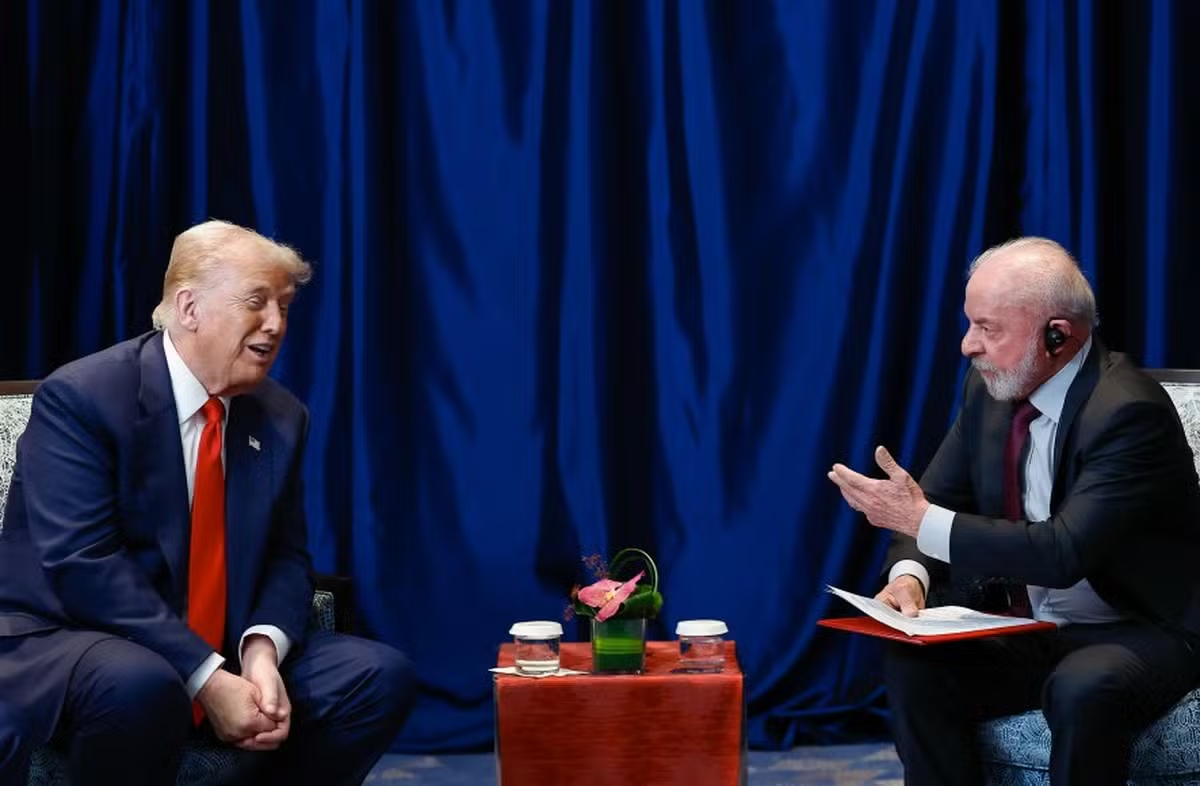
After US President Donald Trump said there was no room for further reductions in import tariffs than those set out in a decree issued on Friday night, Vice President and Minister of Development, Industry, Commerce and Services Gerard Alcumin said this Saturday that Brazil’s government would continue to press for new reductions, saying economic sectors such as coffee cultivation remained concerned about tariffs and that there were distortions that needed to be corrected.
- Understand: Goldman Sachs predicts the real will be the currency with the highest potential returns for investors until 2035
- From August to October: Deficit with the US increases by 341% after tariffs, putting pressure on Brazil’s exports
Friday’s decree lowered tariffs on about 200 agricultural products, but maintained a 40% surcharge on Brazilian exports that had been in effect since August. In an interview in Brasilia, Alkmin classified the cuts as “positive” but did not consider negotiations with the United States to be over.
– That is a positive thing and we will continue to work on it, – the Vice President said at the Planalto Palace, citing a meeting between President Trump and President Luiz Inacio Lula da Silva last month. — There are distortions that need to be corrected. They all had less than 10%, but in Brazil it was 50% and ended up at 40%, which is very high (for coffee). In the case of Vietnam, it decreased by 20%, then 20%, then zero.
- investment: Mantiqueira enters the U.S. egg market with acquisition of Hickman’s Egg Ranch
In the order, the U.S. government eliminated so-called “reciprocal tariffs” introduced to all countries in April on several agricultural products not produced in the United States, including beef, tomatoes, coffee, bananas, and acai.
The move is seen as an attempt by the White House to ease prices for U.S. consumers in response to Republican losses in key local elections, including the New York City Council election earlier this month.
Average prices for roast coffee and beef rose 18.9% and 14.7%, respectively, in the 12 months through September, according to the CPI, one of the main consumer price indexes in the U.S. calculated by the U.S. Bureau of Labor Statistics (BLS).
On Friday night, President Trump finished making adjustments.
–I don’t think (new tariff reductions) are necessary. There was only a slight setback in some foods, for example coffee, where prices were slightly higher. This time, it will be lowered very quickly, Trump said in response to a question from a journalist aboard the presidential plane, Air Force One, on a flight between Washington and Florida, where the US president will be visiting this weekend.
In Brazil’s case, industries that rely on the United States as a key export destination reacted cautiously to Friday’s decision. First impressions made me question the extent of the cuts to Brazil. In the next moment, interpretations converged on the understanding that 40% would be retained.
Coffee producers say the situation has worsened after tariff changes
For coffee, the situation may be even worse. Eliminating “reciprocal tariffs” on products for all countries would make exports from other important supply countries to the U.S. market, such as Vietnam, cheaper. Meanwhile, the tax rate on coffee produced here used to be 50%, but from now on it will be 40%.
— Considering the competitiveness, the situation is even worse for us — says Marcos Matos, General Director of the Coffee Exporters Council (Cecafé). — Our competitors were wiped out and we found ourselves in a very difficult situation.
- upside down: Brazilian coffee ‘floods’ to Colombia after US tariffs, threatening even luxury brands
For representatives of coffee exporters, the US government’s decision could mean increasing pressure on the Brazilian government to continue negotiations. Mr. Matos called for greater efforts in negotiations.
— Our intention is for Brazil to step up its negotiations and we need to act more aggressively. It is to consider what is most viable and begin negotiating exemptions for the most important products, and coffee is one of the first products.
The Brazilian Specialty Coffee Association (BSCA) said in a note that maintaining the 40% ratio “will tend to increase trade distortions and intensify the decline in specialty coffee exports to the United States in the short term.” The group said specialty coffee shipments fell 55% between August and October compared to the same moving quarter in 2024.
The United States accounts for 16% of all grain exports produced in Brazil, making Brazil the world’s largest exporter, according to data from the Foreign Trade Secretariat (Secex). According to Cecafé, between August and the end of October, coffee exports to the United States fell by 51.5% compared to the same period in 2024.
CNI: 11% of exports
Friday’s changes will affect 11% of Brazil’s exports to the United States, totaling $4.6 billion, according to the Confederation of National Industries (CNI). Importantly, if the additional 40% is maintained, the competitiveness differentials of these exports will remain largely unchanged. For the CNI, negotiations between Brasilia and Washington remain urgent.
“Further progress is needed to remove all additional barriers,” Flávio Roscoe, president of the Minas Gerais state industry federation (Fiemg), said in a statement.
Abrafrutas, which represents fruit growers across the country, highlighted that grapes, which are second on the list of fruit exports to the United States, were excluded from Friday’s decree.
(*Collaboration with international organizations)



